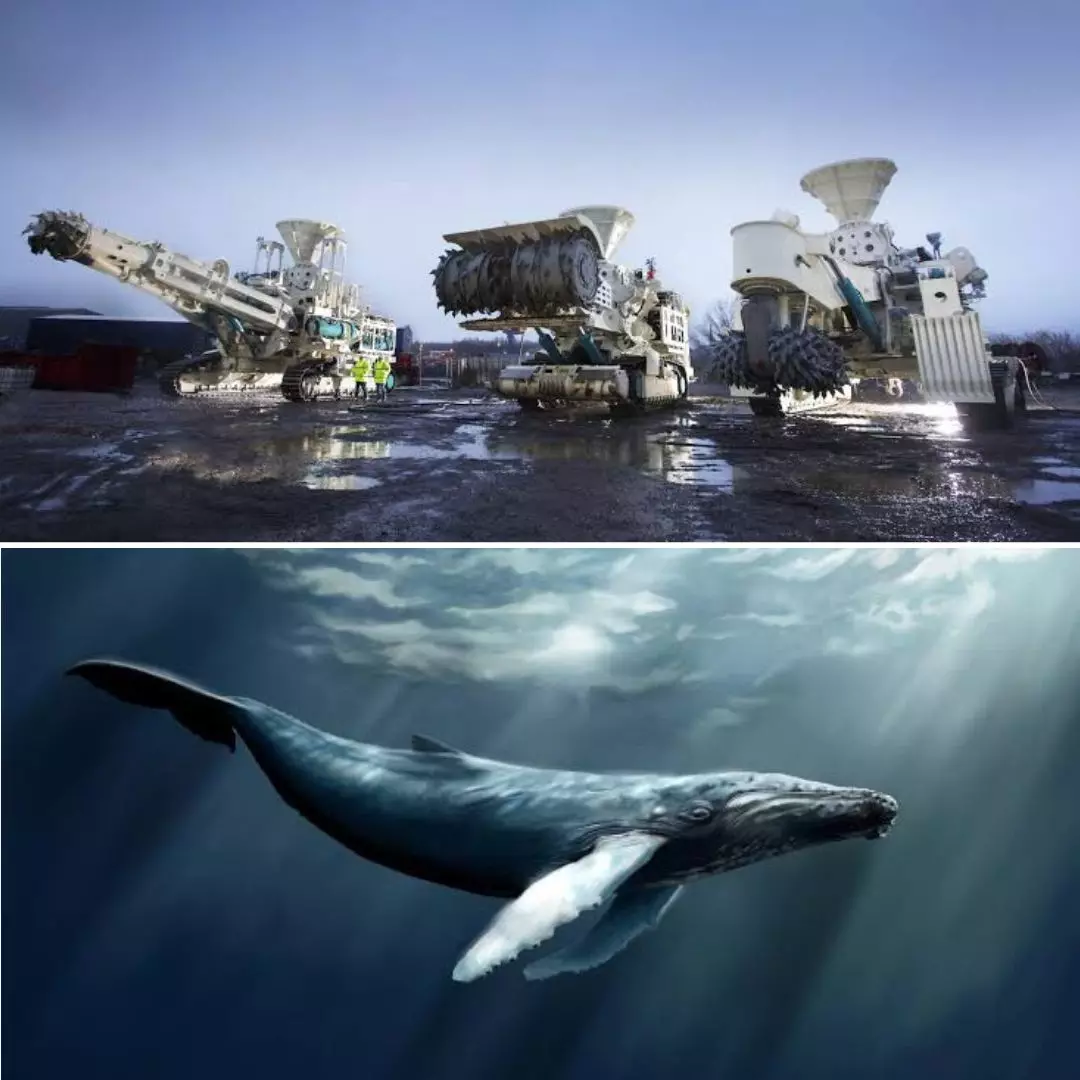Mining the natural seabeds comes along with several concerning environmental problems, from destroying habitats to even entirely wiping out species. Piling up on these existing findings, a peer-reviewed study funded by Umweltstiftung Greenpeace has found that the noise produced by seabed mining could interfere with the whales’ ability to communicate with one another. The study’s findings come ahead of countries picking up the pace on projects to mine deep-sea for battery metals.
Cetaceans At Risk Under Ambitious Projects
The study funded by Umweltstiftung Greenpeace, a foundation arm of the environmental organisation, has put forward the argument that more research needs to be carried out to assess the risks of deep-sea mining. Earlier, it was known and proven to pose a threat to large marine animals, and as the scope of marine studies grew, it explored how deep sea-diving places a huge dent in the ecosystem. The latest research suggests that the noise produced by mining the seabed could interfere significantly with the whales’ ability to communicate with one another.
The revelation comes ahead of several nations and multinational companies pushing plans to acquire rocks rich in battery metals that blanket the vast seabed. While mining cannot legally begin in international waters until the regulations are agreed upon at the International Seabed Authority (ISA), it is still a matter that raises several concerns. The ISA has granted about 17 seabed mining exploration licences in the northern Pacific region where an estimated 22 to 30 cetacean species, including the endangered blue whales, can be found.
Mining would produce noises that could interrupt with the marine mammals’ ability to navigate using echolocation and disrupt the messages they send across. The study read “sounds produced from mining operations, including from remotely operated vehicles on the seafloor, overlap with the frequencies at which cetaceans communicate.”
Repeated Red Flags Later
The study, published in Frontiers in Marine Science, explored vastly how the mining noises could cause disturbances and disrupt the whale songs. According to a report by The Hindu, there have been multiple previous studies which deduced that ocean noises can make whales experience several negative effects. One study had made a correlation that pointed out that man-made noise could increase risk of humpback whale mothers being separated from their calves because their normal vocalisations are quiet.
All these findings happen to be just the tip of the iceberg, and the researchers wrote, “Far-from-sight impacts on cetaceans could go largely unquantified and unnoticed, along with those on other pelagic predator species that rely on deep ocean areas.” Amidst several such warnings and scientific studies advising against seabed mining, the ISA will be hosting international negotiations in March and July 2023 to finalise regulations for high-end companies to exploit and reap benefits.
Also Read: Gold Coin For Plastic Waste! Know About This Kashmir Village’s Unique Clean-Up Mission
https://thelogicalindian.com/h-upload/2023/02/18/500x300_229874-untitled-design-8.webp
Environment
2023-02-18 10:06:42.0
Threatened Ecosystems! Deep Sea Mining Noises Disrupt Whale’s Communication Frequencies, Reveals Study










